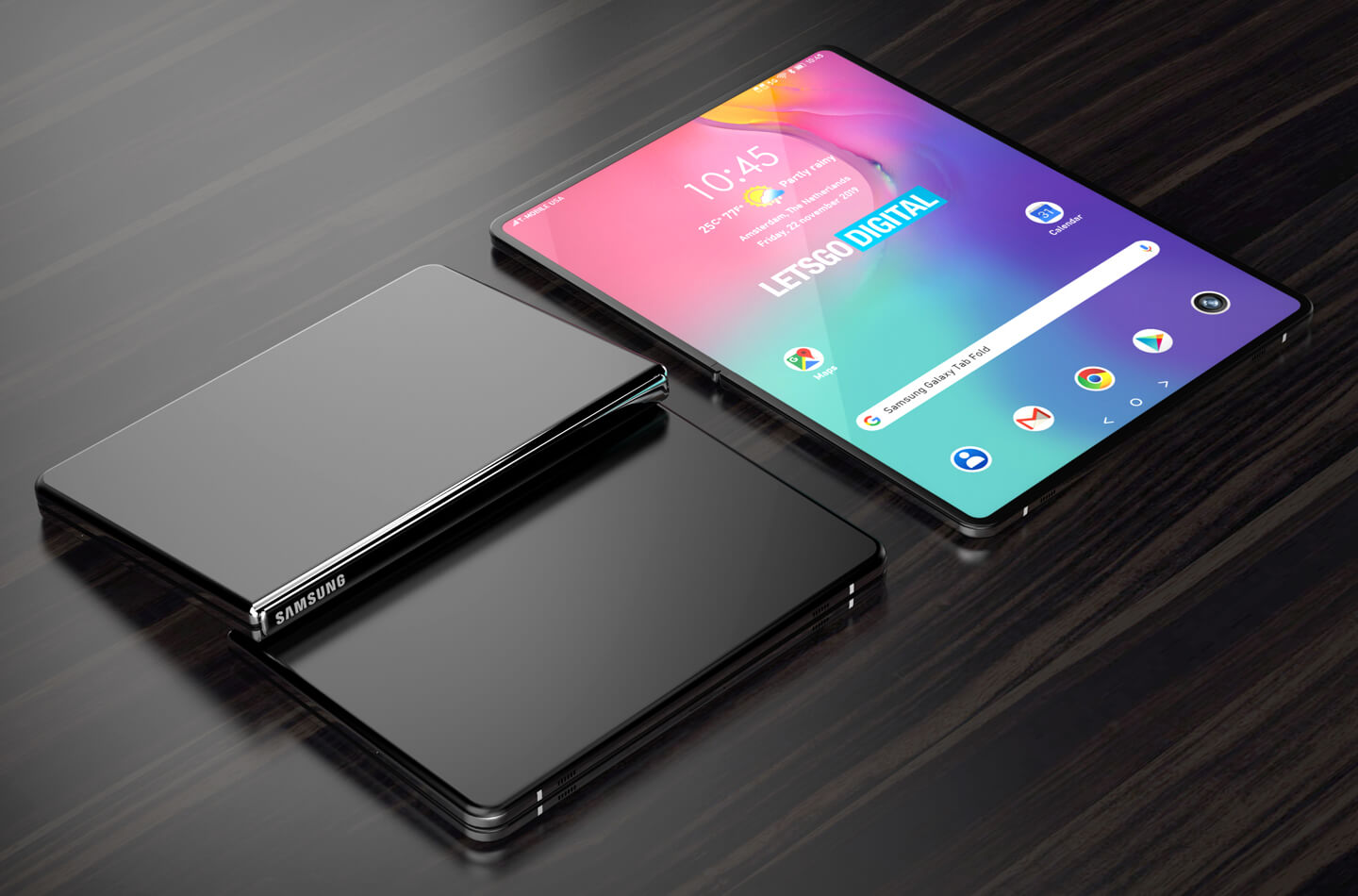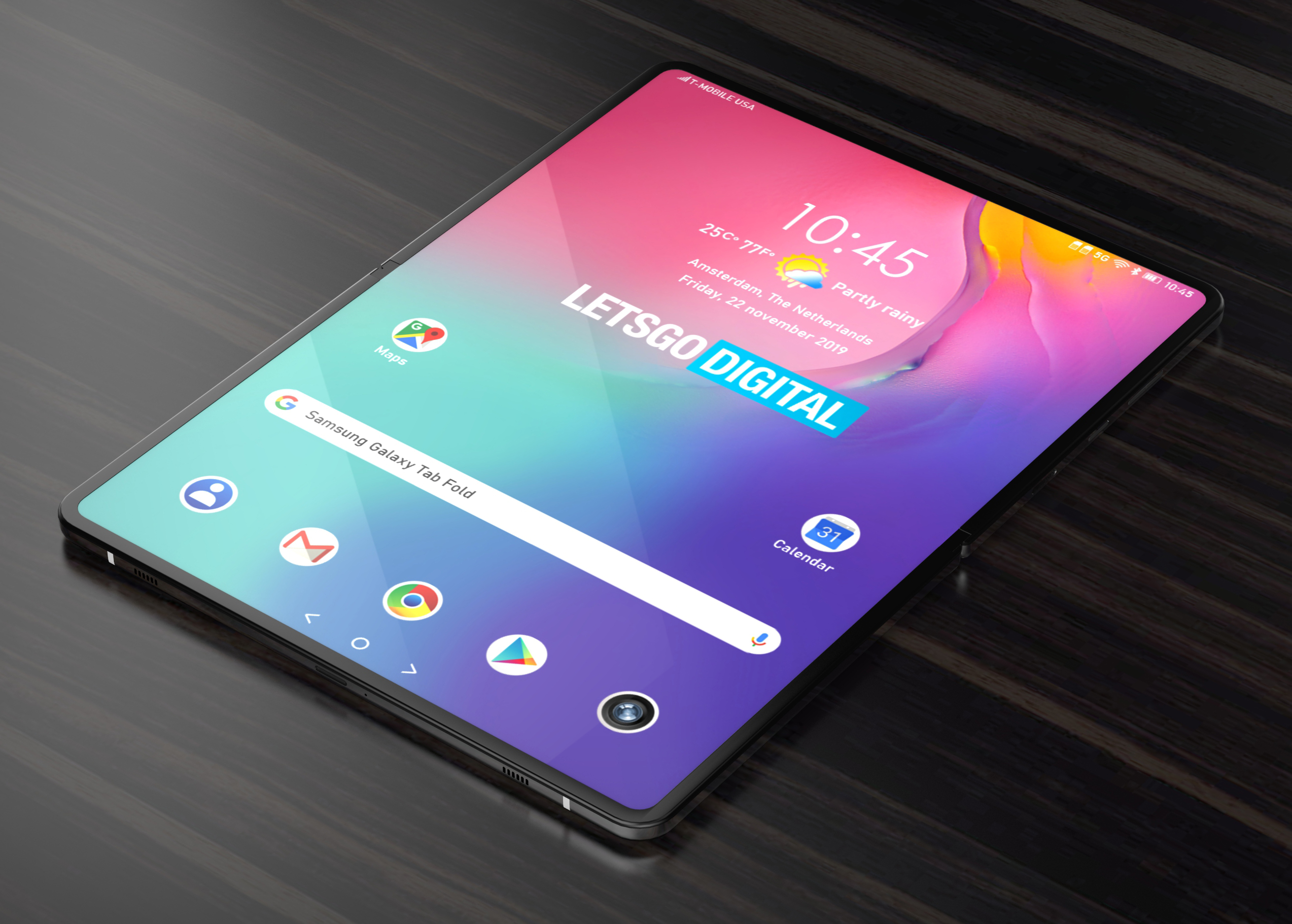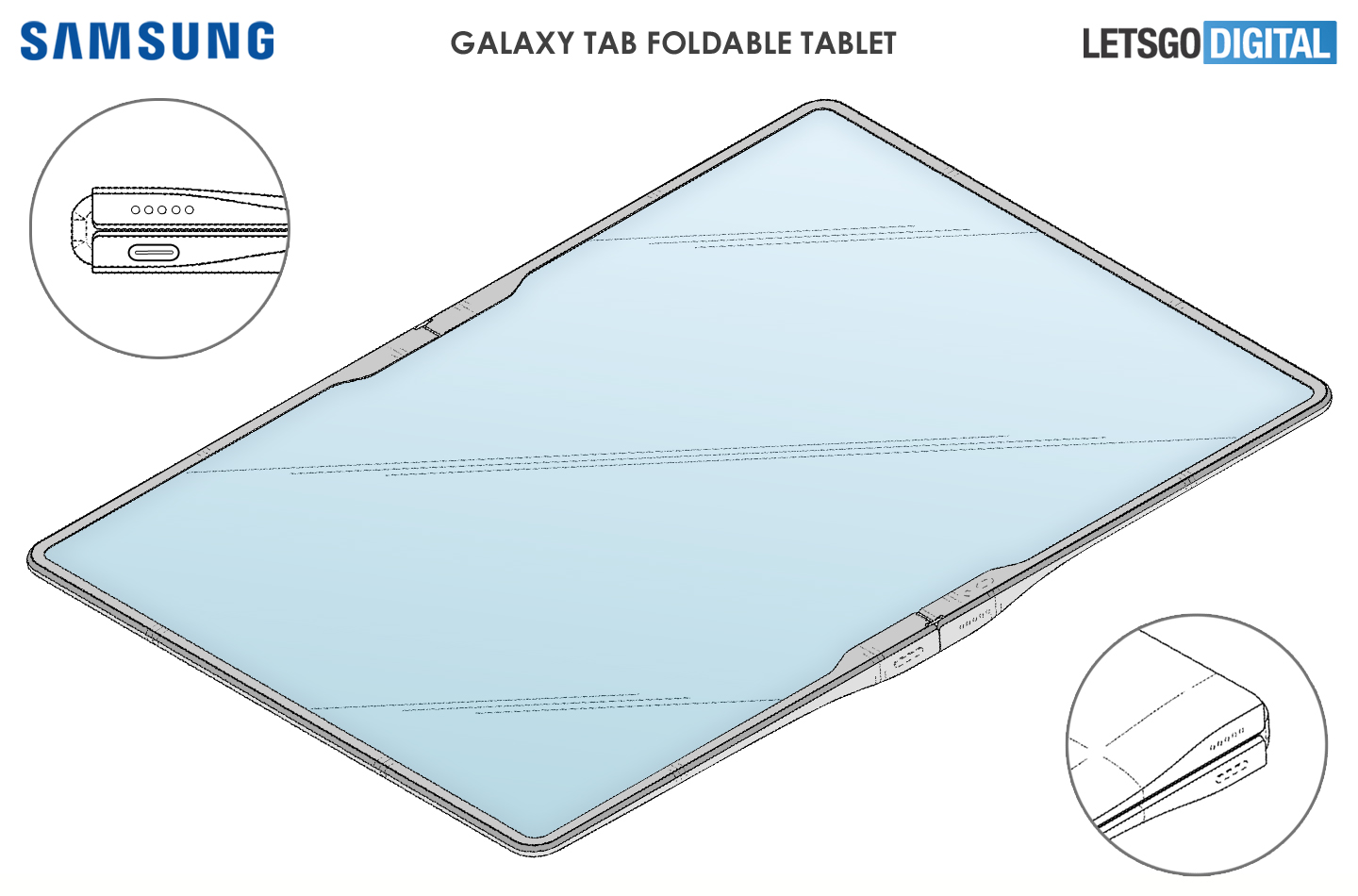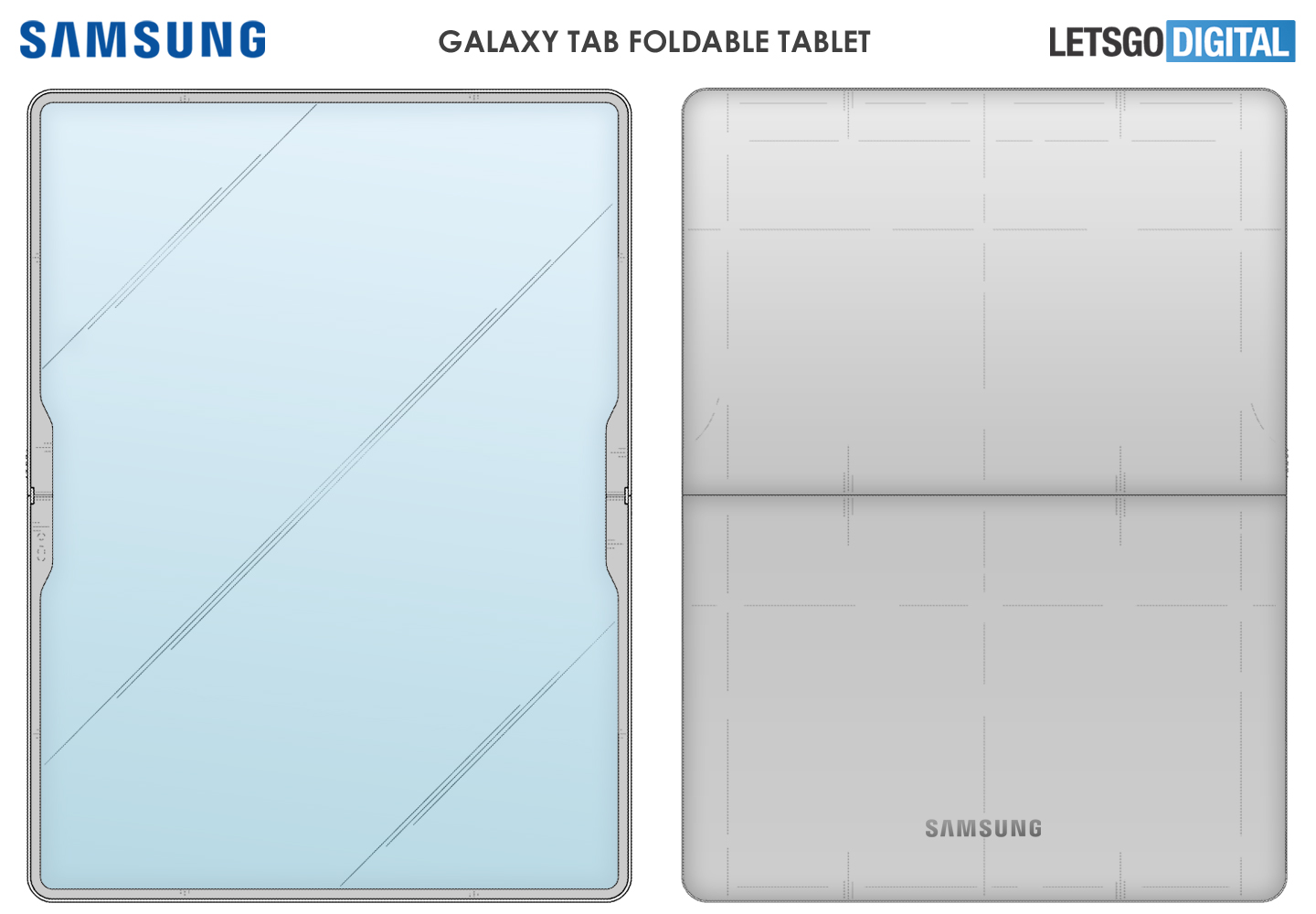Forget Samsung Galaxy Z Fold 3 — this could be Samsung’s foldable tablet
Samsung's working on a foldable tablet, and this is what it could look like

The Samsung Galaxy Z Fold 3 that's coming later this year could look positively old-fashioned when compared to a different foldable tablet that Samsung may be working on.
Samsung has yet to put its foldable display technology onto a tablet, though such a move seems inevitable. And a newly revealed patent shows that Samsung is thinking about how to translate the design of the Samsung Galaxy Z Fold 2 and Samsung Galaxy Z Flip to larger devices. From our vantage point, it certainly looks good.
- The best foldable phones: Samsung dominates
- Here are the best tablets you can buy right now
- Plus: The one-off OnePlus Nord LE can be yours — if you're lucky
The patent for the plainly named "Display device" was spotted by LetsGoDigital, which also produced the renders and illustrations you see here to better show off what Samsung has in the works. There's no mention of internal technology, so we'll focus mostly on this tablet's looks.

The tablet's opened design features a simple rectangular display, except with two subtle notches on either side of the screen where the folding mechanism is. These contain the tablet's charging port, power button and dual speakers on the outside edge, while within the bezel on one side is the tablet's front-facing camera and microphone. This is fairly similar to how the Samsung Galaxy Tab S7 and Samsung Galaxy Tab A7 look — aside from the crease for the hinge of course.

The tablet's body around the notches is also noticeably thicker than the extremities of the tablet. Similar to how the Huawei Mate X2 foldable phone tapers from one edge to the other, the illustrations in the patent show a device with one thicker side and one slimmer side. This could make the tablet easier to handle one-handed, but does go against the general symmetrical design of almost all modern devices.
Unlike Samsung's Z Fold or Z Flip phones, there's no external display or camera module present on this tablet design. It's arguably not necessary on a tablet to have such immediate access to your notifications, or for it to have rear cameras. However it does feel odd to see a foldable without these features.

The hinge in LGD's renders has been made to look like the square-ish one on the Galaxy Z phones. This would be smart since the hinge on these devices works well in a number of ways. As well as permitting the folding action, the hinge can also hold the device open at multiple angles, and contains miniature brush elements within to keep dirt out of the sensitive inner mechanisms.
Sign up to get the BEST of Tom's Guide direct to your inbox.
Get instant access to breaking news, the hottest reviews, great deals and helpful tips.
Overall this seems like a rather tame concept for a folding tablet. However Samsung is perhaps smart to keep things simple. Tablets are not generally a user's primary device for photography or responding to immediate messages, so keeping a clean design that focuses on maximizing internal space should suit most users well, and keep the no-doubt extortionate price down as low as it can go.
A simple book-style foldable isn't the only concept Samsung is working on. The company has also filed patents for three-part foldable phones, as well as rollable and slidable designs. These also sound incredibly exciting, but this kind of foldable is much more likely to appear before these more novel designs do, if they even become real products. After all, patents don't always translate into shipping products.
Samsung's tablets are already some of the best tablets around, even with stiff competition from Apple's iPad family. However, if the electronics giant could bring out this tablet concept as a retail product, it would effectively corner the folding tablet market, like it has with the folding phone market. That is, until other large foldable products like the Lenovo ThinkPad X1 Fold start popping up.

Richard is based in London, covering news, reviews and how-tos for phones, tablets, gaming, and whatever else people need advice on. Following on from his MA in Magazine Journalism at the University of Sheffield, he's also written for WIRED U.K., The Register and Creative Bloq. When not at work, he's likely thinking about how to brew the perfect cup of specialty coffee.
